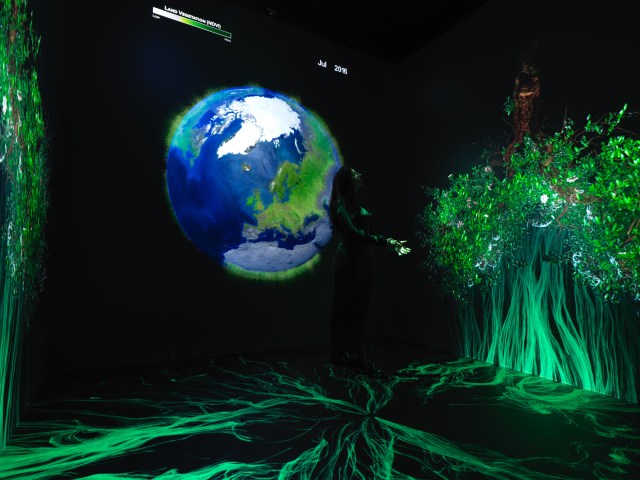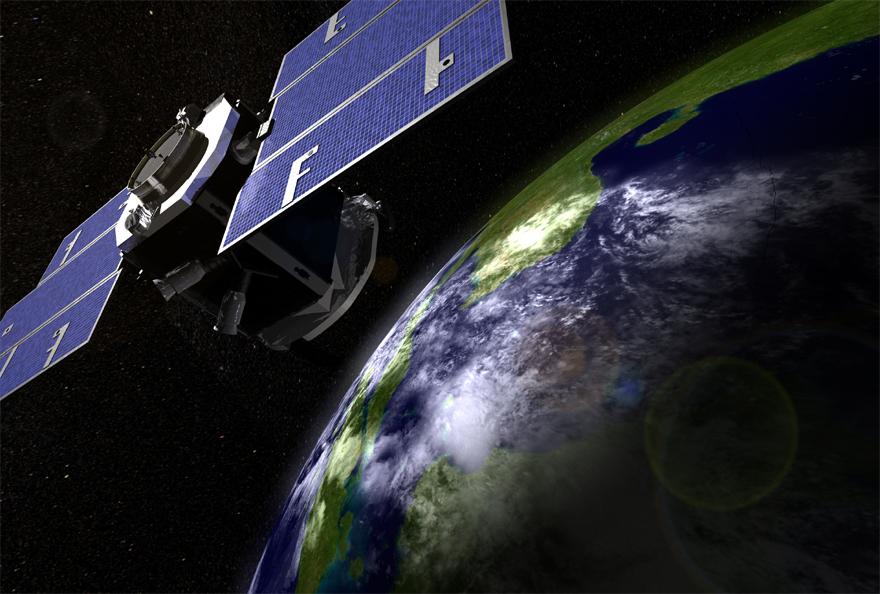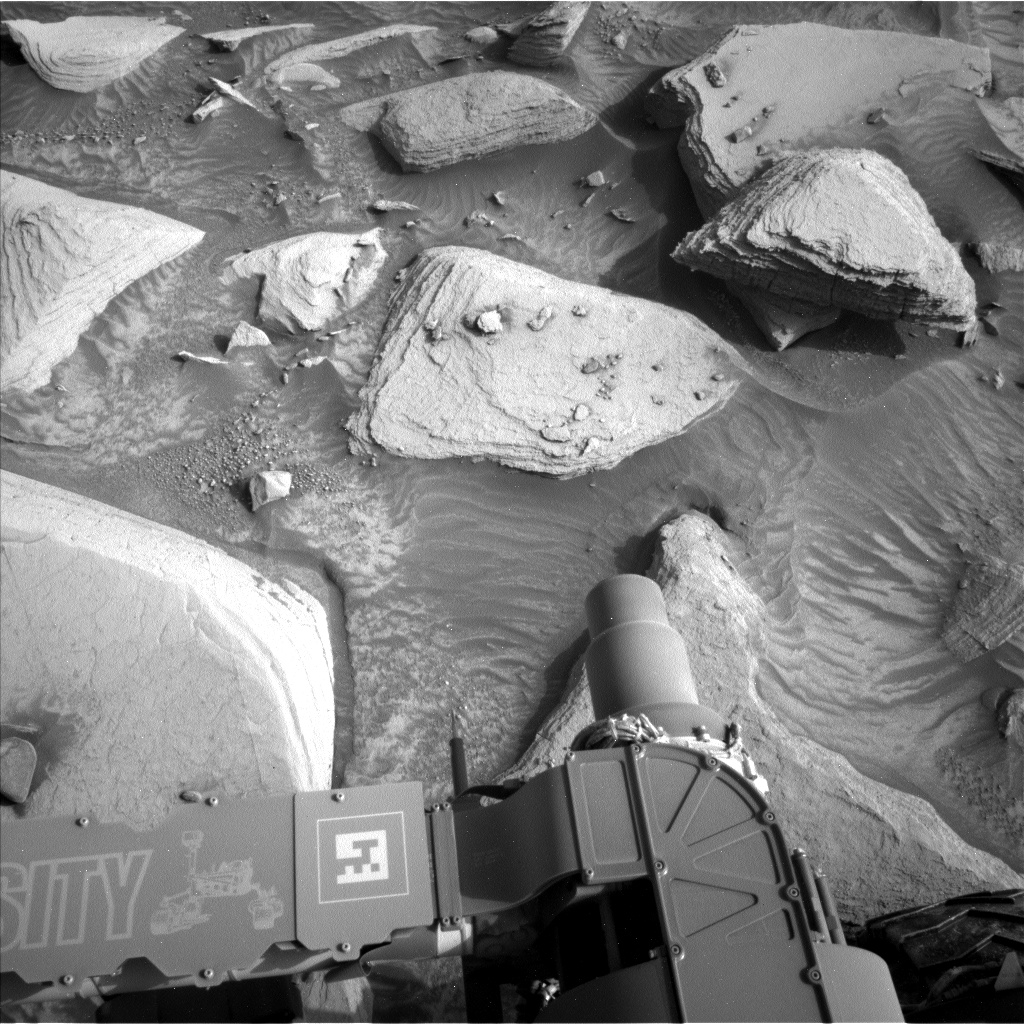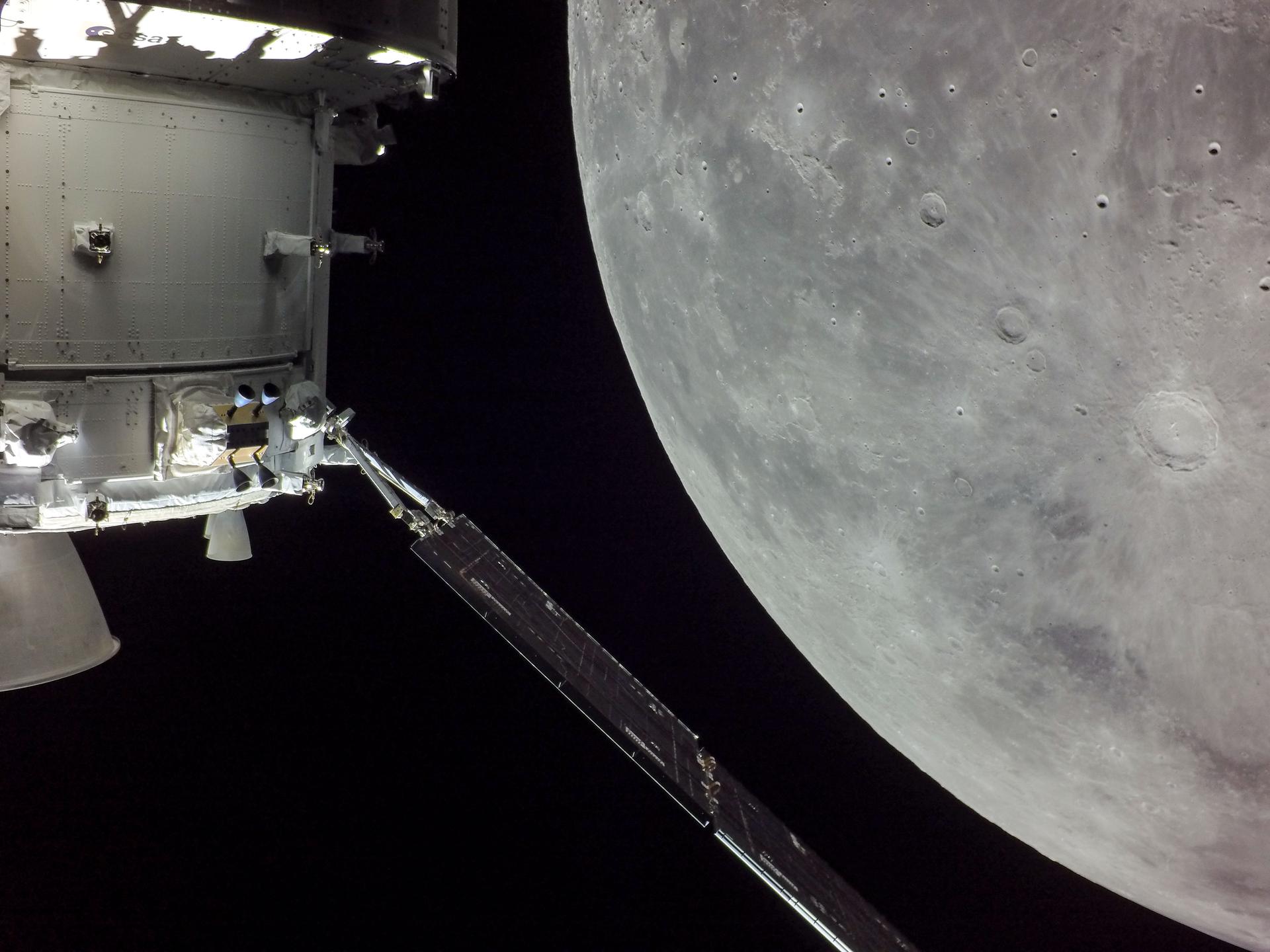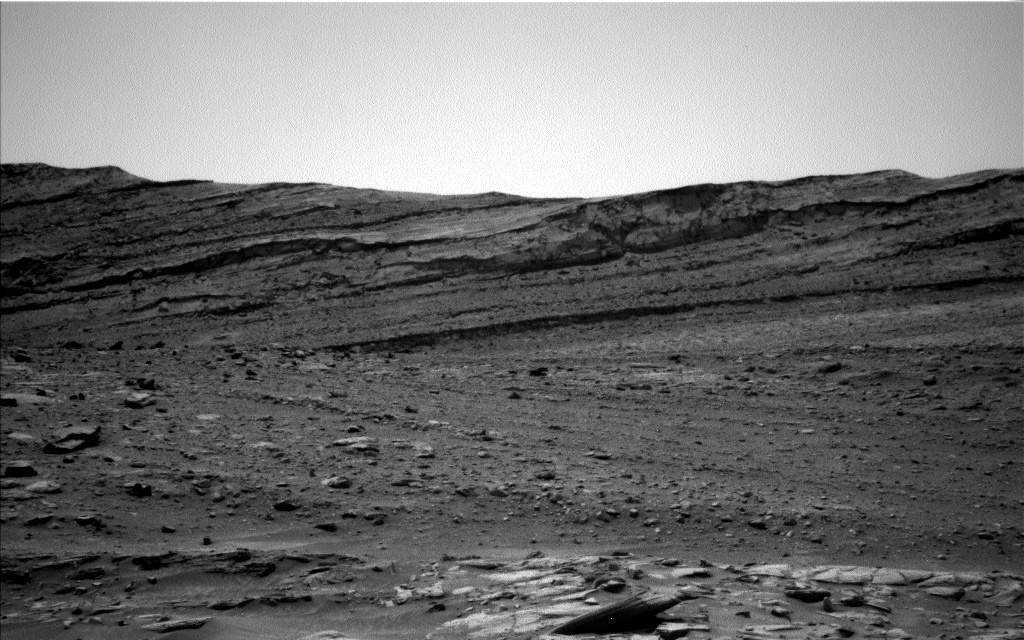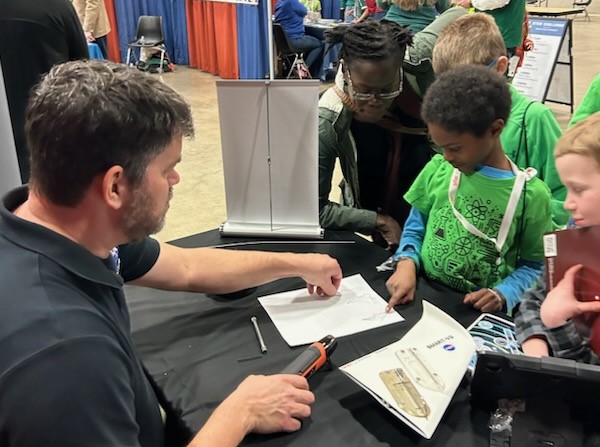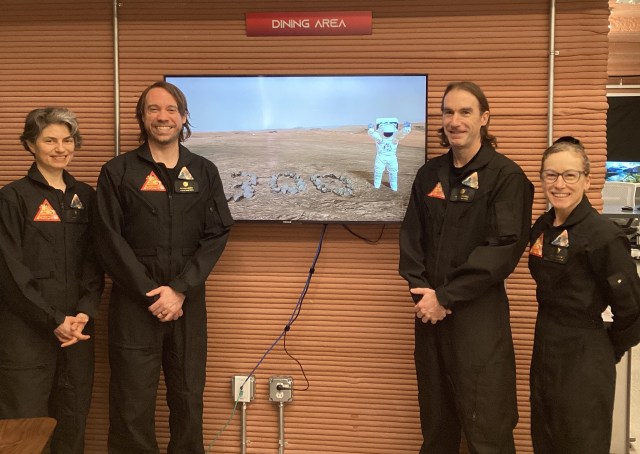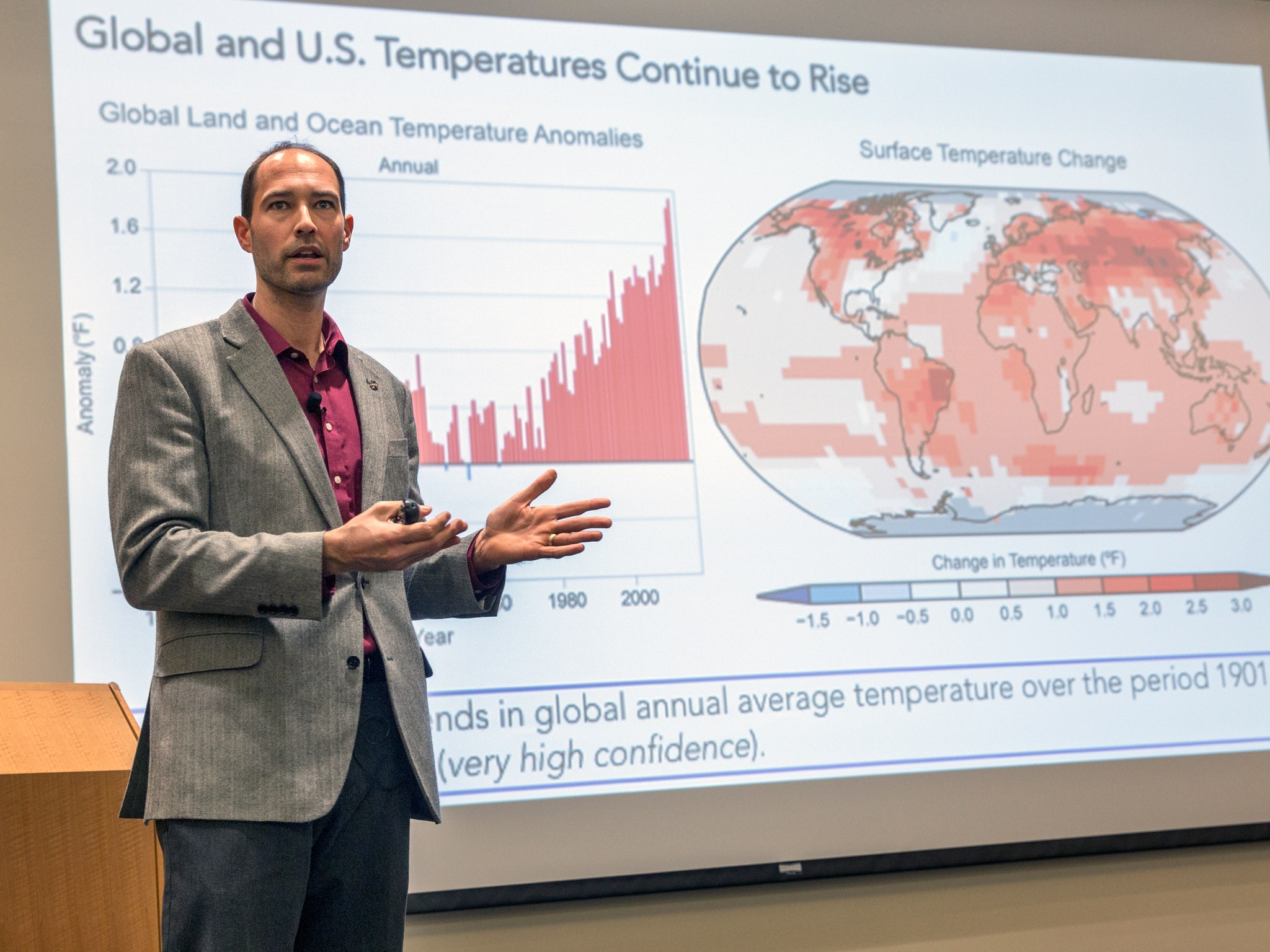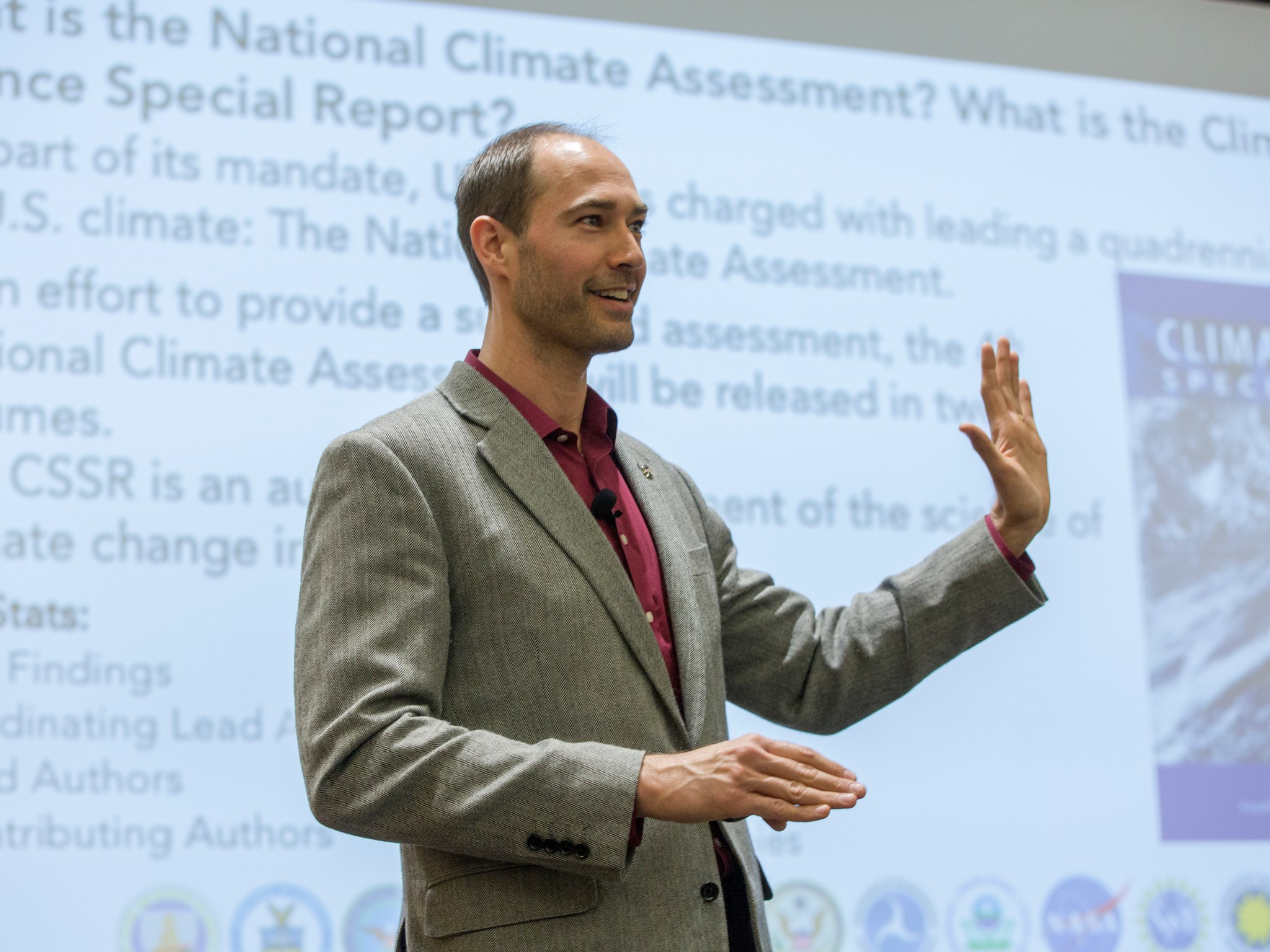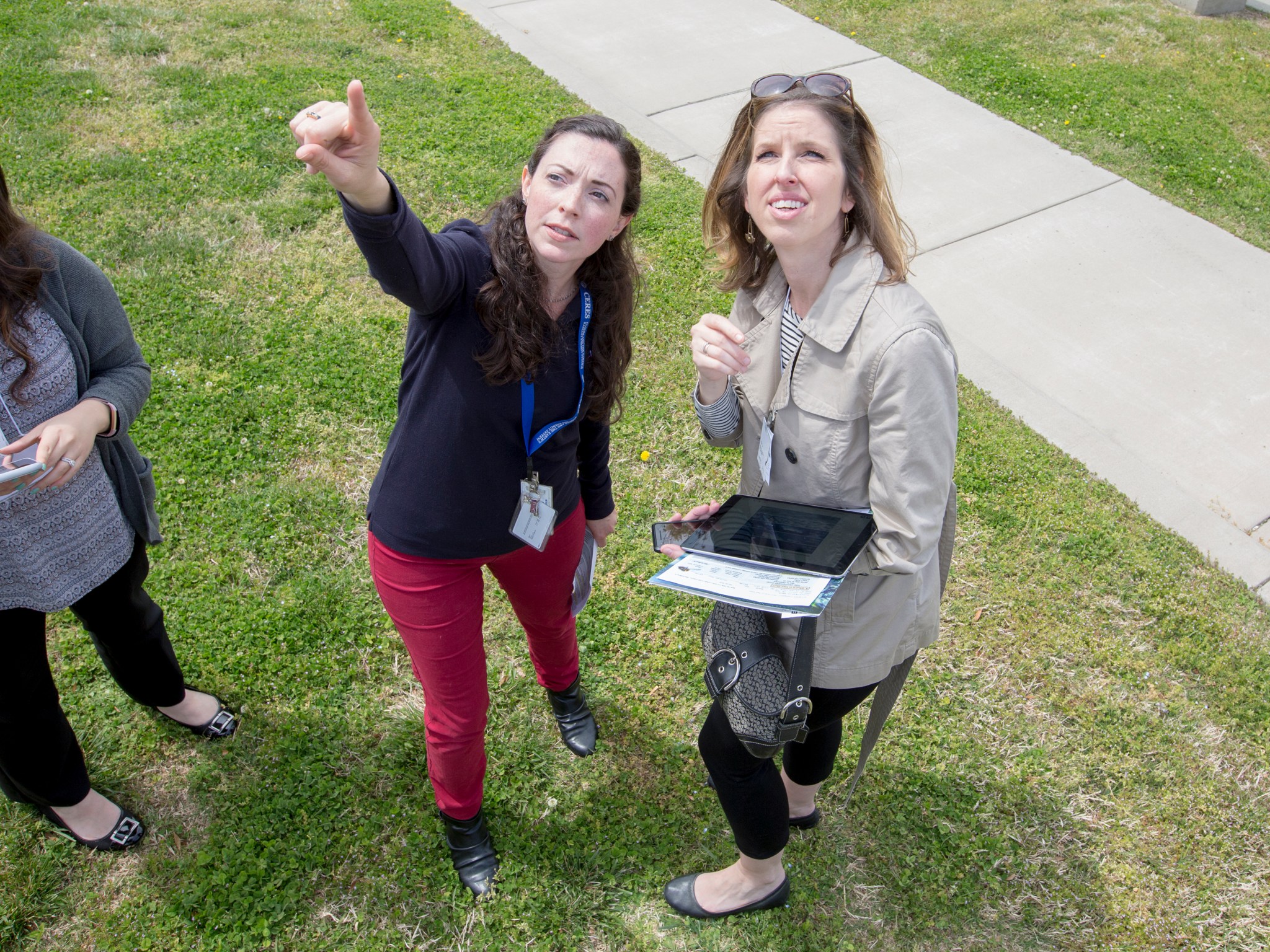Everything on Earth is connected – its climate system is no exception. That statement was driven home in a recent report, which was discussed by one of its lead authors as part of the Earth Day observances at NASA’s Langley Research Center in Hampton, Virginia.
Patrick Taylor, a research scientist at Langley, gave attendees of his talk a lesson in how society and Earth’s climate are inexorably linked — for better or for worse. Taylor was a lead author on the 2017 Climate Science Special Report, a 15-chapter, multi-agency report looking at climate change in the United States. The U.S. Global Change Research Program oversaw production of the report. Climate impacts our daily lives whether people realize it or not — from food and water availability to energy prices.
“These are the real, everyday situations,” Taylor said. “I use them to show how tightly interlinked society is to the climate.”
Local Effects
In his talk Monday, Taylor localized the report’s findings to the Hampton Roads area, where Langley is based. The region is susceptible to high-tide flooding thanks to its low-lying location on the Atlantic coast. The flooding can make roads impassable, infiltrating structures and requiring costly cleanups, and is becoming increasingly common as sea levels rise.
The report found that this type of flooding — called “nuisance” flooding — has risen between five-and 10-fold since the 1960s in coastal communities, and the rates are expected to continue to rising.
“We expect going forward that the frequency and the intensity of these coastal flooding-type events will just get even stronger,” Taylor said. “These changes that are happening all around the world, even in far reaches of the planet such as the Arctic, are affecting us here in Hampton Roads.”
Sea-level rise has global economic and national security implications. Sea-level rise alone is putting $100 billion of U.S. military assets at risk, according to the Department of Defense. Langley is in the same region as Naval Station Norfolk and Joint Base Langley-Eustis, both of which have experienced increased flooding over the years.
Early Interest
The Earth’s climate has been a longtime fascination for Taylor. In the fourth grade he was assigned to be the class’s data entrant, and would write the day’s temperature, humidity and wind speed on the chalkboard to spur discussion.
“In the time since, after I learned more and more, and experienced more and more, I’ve really come to appreciate that climate science is really more than just a fun hobby or curiosity,” said Taylor. “It’s something that’s really important for human society. What we know about the climate system and how it changes over the next couple of decades is going to really impact the decisions that we make going forward.”
Other Earth Day activities at Langley included a science poster session, interactive exhibits from local organizations and nature clubs, trivia games and plant giveaways. Science educators at Langley also hosted a group of local teachers, who toured the facility, observed clouds and attended Taylor’s talk.
“All of us really have a role to play in educating folks about these systems that we often take for granted,” Taylor said. “As a society, we still control the future.”
Eric Gillard
NASA Langley Research Center

